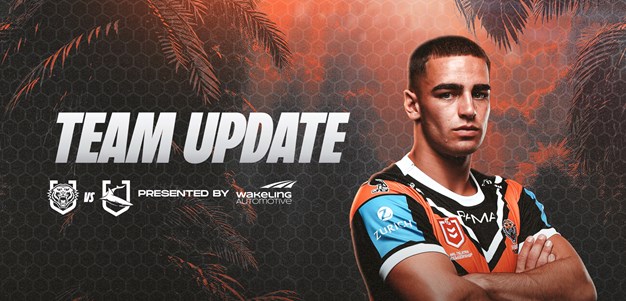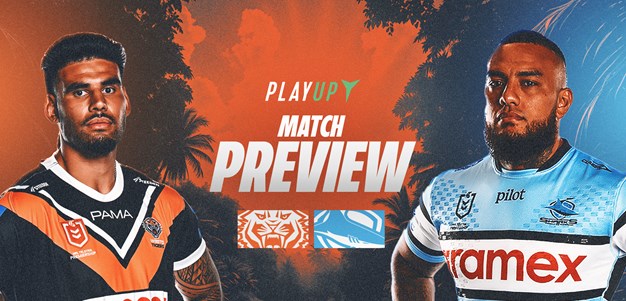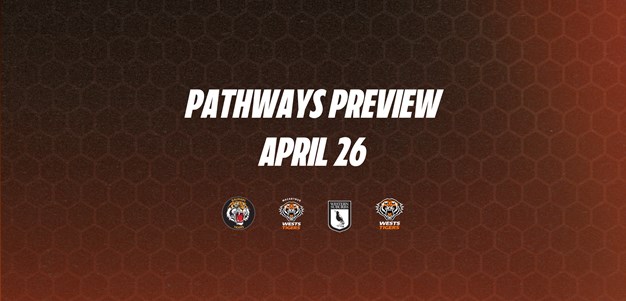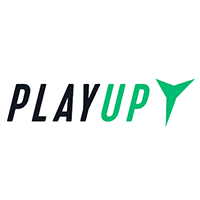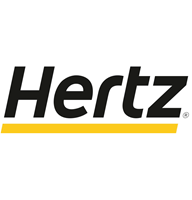
"I now believe in Santa Claus."
The email reply from NRL head of football Graham Annesley said it all.
He had just received an email from NRL head of government and community relations Jaymes Boland-Rudder advising him that the Warriors had been granted approval to fly to Tamworth on May 3 and train in isolation.
Ensuring the Auckland-based team could play when the NRL returned on May 28 was arguably the most vital development in the game’s bold bid to resume playing under the leadership of ARL Commission chairman Peter V’landys but many other significant hurdles have also been overcome.
The Australian, New Zealand, NSW, Queensland and Victorian governments had to be convinced the NRL had the right protocols in place and players would abide by them, with Boland-Rudder admitting to fears that recent breaches of COVID-19 laws by big-name stars had jeopardised the restart.
The logistics of organising the resumption of the season were extremely difficult with national and state borders closed and the landscape continually changing as governments successfully adapted policies to slow the rate of infection to a trickle.
It took an unprecedented level of co-operation from clubs, players and officials to turn what many had thought was impossible when the season was suspended indefinitely on March 23 into what will become a reality when the Broncos host the Eels on Thursday night.
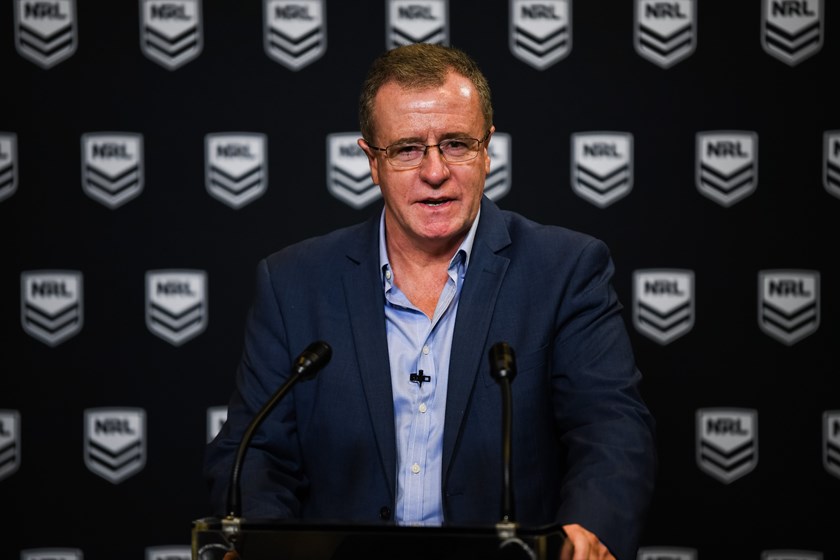
Behind the scenes, members of the NRL's football department, government relations team and digital staff worked tirelessly to organise for teams to travel, train and play, draw up operational guidelines and biosecurity measures, devise a new season schedule and develop a health check app for players.
"It’s been like a military operation," said Annesley, who worked around the clock with a skeleton football department staff, which included Jason King, Nathan McGuirk and Adi Hingorani.
"There was a lot of scenario planning that took place and things that none of us are really qualified for. We had to rely heavily on external advice.
"We have been dealing with experts and specialists in the field of biosecurity, pandemics and viruses. There were a lot of logistical processes we wouldn’t normally get involved with in running a competition.
"At one point we were having daily Zoom conferences with the club CEOs in the lead-up to the resumption of training, just to keep them in touch with what was happening."
Blazing a trail on the global landscape
The NRL has led the way for sports to return and will be the first major competition in Australia and the only collision team sport in the world to resume when round three of the Telstra Premiership kicks off this week.
However, being the first is far more challenging and the NRL needed to develop a wide-ranging plan about how the competition could return safely, then present it to the various governments involved for approval.
The NRL’s determination to resume on May 28 sparked criticism and controversy. Representatives of the other six sporting bodies – the AFL, FFA, Cricket Australia, Netball Australia, Rugby Australia and Tennis Australia – in the Coalition of Major Professional and Participation Sports had scoffed at the game’s ambition.
Episode 4 - Adam Reynolds and Wayne Pearce
"At the start the consensus from the other sports was you guys have got rocks in your heads but now it has changed to us giving updates on how we have achieved things and how we did things that they are all grappling with now," Boland-Rudder said.
Queensland Premier Annastacia Palaszczuk also effectively ruled out the Broncos, Cowboys and Titans being able to train or play in the state and questioned whether this year’s Origin series should be scrapped.
While contingencies were put in place for the three Queensland teams to relocate to NSW, Boland-Rudder, Cass Lawry and Lachlan Smith focused on the task of convincing each of the governments that it was safe for the NRL to resume.
"I think we changed some attitudes because they saw that behind a very tough sport is a very considered administration that is focused on providing a framework for the sport to resume and was very strict, considering all the health elements and would provide a blue-print for other sports," Boland-Rudder said.
"We went to them with a draft plan and said this is how we intend to achieve it. We had [video] meetings with a number of the Chief Medical Officers. I think they were pleasantly surprised by the depth of the plans."
New app on the pulse of player safety
A centrepiece of the NRL’s proposal was the strict biosecurity measures in place for players and coaching staff to ensure there would be little risk of COVID-19 infecting entire teams or the wider community.
An app was developed by a three-person technology team from NRL Digital in just eight days to enable medical staff to monitor the health of players and others among the 50 nominated people in each team’s "bubble", as well as match officials.
The team, led by NRL head of technology Domenic Romeo, created the app from scratch as no other sports had developed anything similar.
Each player was sent a secure link to download the NRL Check-Up app and is required to enter their temperature, how they are feeling, their movements in the previous 24 hours and details about other household members on a daily basis.
They are then advised whether they can attend training or what other action to take, including undergoing testing for COVID-19 as Sydney Roosters coach Trent Robinson and South Sydney players Latrell Mitchell, Adam Reynolds and Liam Knight did on May 4.
Players who don’t enter any details are contacted by their club’s COVID-19 co-ordinator and at each training venue there is a security checkpoint at which they are only granted access after compliance.
The consensus from the other sports was you guys have got rocks in your heads.
Jaymes Boland-Rudder
"The app allows the players to self-test and self-identify, and then connects the medical and wellbeing officers to any incident," Romeo said.
"If a player records a certain temperature or records certain symptoms that triggers an alert and the medical team will respond for validation or testing."
The app was part of a presentation to government on April 22 and work started the following day, with each of the 890 players and coaching staff needing to have it installed on their phones, ready to use, from May 4.
"In eight days with a team of three [Romeo, Cameron Shaw and Cameron Wills], we utilised the existing NRL Digital skills and technologies to roll out a fairly sophisticated biosecurity app that is now working to serve the health protocols," Romeo said.
"It was extremely difficult, there wasn’t anything out in the market so our mobile team built it internally.
"I think there are just under 900 players and staff who all needed to get the app, get it installed and enrol with the service so that was no mean feat. [NRL Digital club and state projects manager] Jess Goddard was key in managing the unprecedented engagement we had in a short period of time with the clubs."
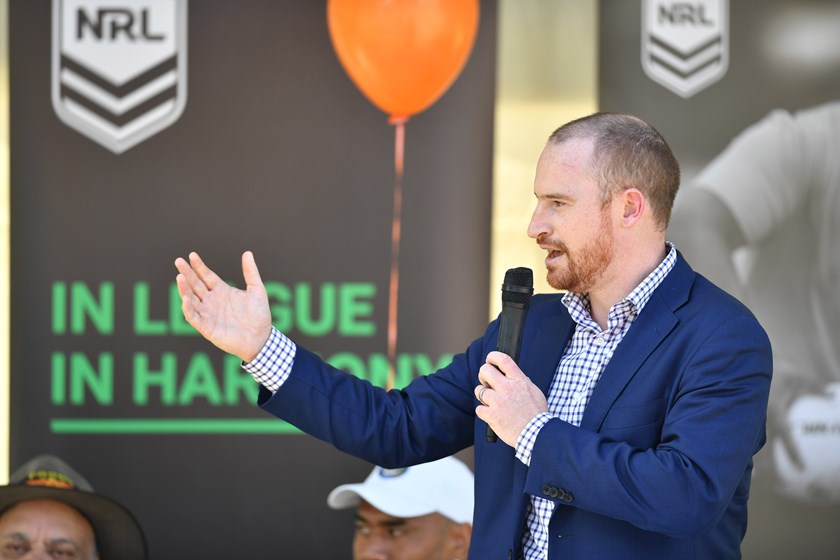
Time of unity: League in harmony
Annesley compares the extent of the turmoil and uncertainty caused by COVID-19 to the Super League war, but one massive difference is the fact that everyone involved is now united.
"The clubs have been very good, things that they would not normally even consider from a competitive standpoint they have shown some flexibility with because it was a matter of whether we got the competition up and running or not," he said.
"They also knew that they had to comply with very strict biosecurity measures because, if we have an infection, it could mean that even after we start that we have to cancel games and potentially even face the prospect of closing the competition down again.
"There were some setbacks along the way but generally speaking everyone has co-operated because they all know how important it is to get the game back on the field to try and ensure that people are employed and everyone can as much as possible return to normal.
"Our revenues have been affected enormously and the best thing we could do was to get back on the field."
Players and officials have taken pay cuts, staff at clubs and the NRL were stood down, State of Origin has moved to the end of the season and rivalry rounds have been introduced in an intense 18-week competition culminating in an October 25 grand final.
While the introduction of biosecurity protocols that effectively bans casual relationships has created headlines in AFL, NRL players have accepted similar restrictions without fuss.
"The story here is how everyone came together to get the right result for the game," Romeo said.
"The digital team came together and achieved a miracle in getting this app out in time using our existing resources, the medical staff were quickly arranged, the clubs got on board and the referees too.
"There has been a big commitment and a really positive commitment from players, coaches, club officials and staff."
Project Apollo's plans for crowds to return in July
Breaches put restart in jeopardy
Yet the actions of a handful of big name stars in two separate breaches of COVID-19 laws threatened to derail the season re-start.
In the week leading up to a National Cabinet meeting on May 1, Latrell Mitchell, Josh Addo-Carr and Tyronne Roberts-Davis were revealed to have breached the restrictions by going camping at Mitchell’s property on the North Coast.
Just 24 hours later, a photo of Nathan Cleary posing with a group of young women at his house on Anzac Day emerged and the following day there was a TikTok video of the Penrith halfback. His housemate, Panthers five-eighth Tyrone May, was also sanctioned for not fully co-operating with the Integrity Unit's investigation.
The NRL was waiting on approval from the Federal Government to allow the Warriors to fly to Tamworth and the Queensland Government to permit the state’s teams to train and play at home.
"That was a massive setback," Boland-Rudder said. "It was the last week of April when it happened and there was a National Cabinet meeting on Friday, May 1. I was really nervous about what was going to happen.
"The Warriors were coming in that weekend, they were considering the Return to Sport guidelines and the headlines that had dominated that week were around Latrell, Josh and Nathan’s misdemeanours.
"You had the NSW Premier [Gladys Berejiklian] making some pretty strong comments and likewise the Prime Minister [Scott Morrison], and there were any number of other people."
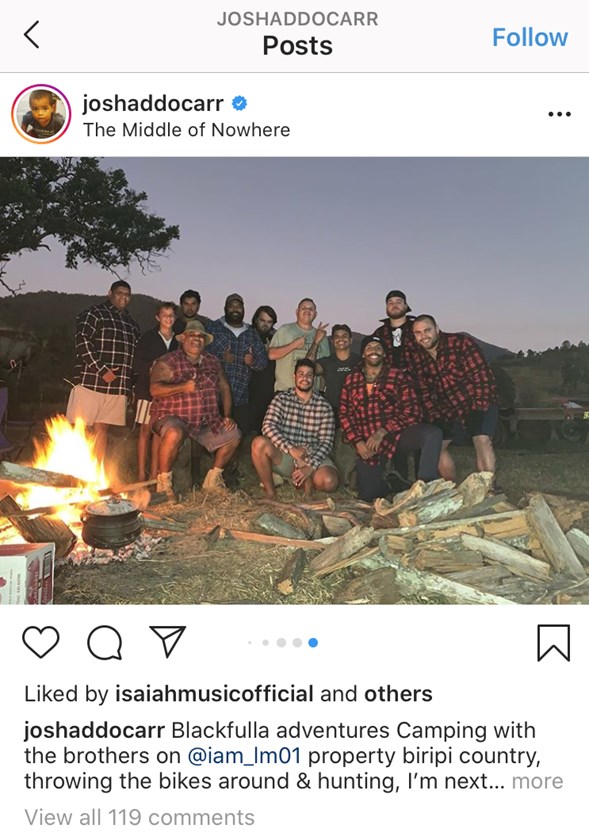
The NRL imposed fines ranging from $10,000 to $50,000 for the players and the threat of suspensions, which have since been imposed on Cleary and May.
Boland-Rudder made sure the politicians and their advisors knew the NRL was taking a tough stance over the issue.
"My wife laughs at me because when I made those phone calls I had been pacing up and down our front yard and I actually wore a track into it," he said.
"There is a track of dead grass in our front yard and I counted that I had made 63 phone calls that one day trying to allay some of the fears of the politicians and advisers and make them realise we were taking it seriously.
"The fines that were handed out were between 10 and 50 times what they would have been fined by the state. It also indicates we are going to have strict protocols and we are going to enforce them in a way that is going to deter any other misdemeanours but we were nervous."
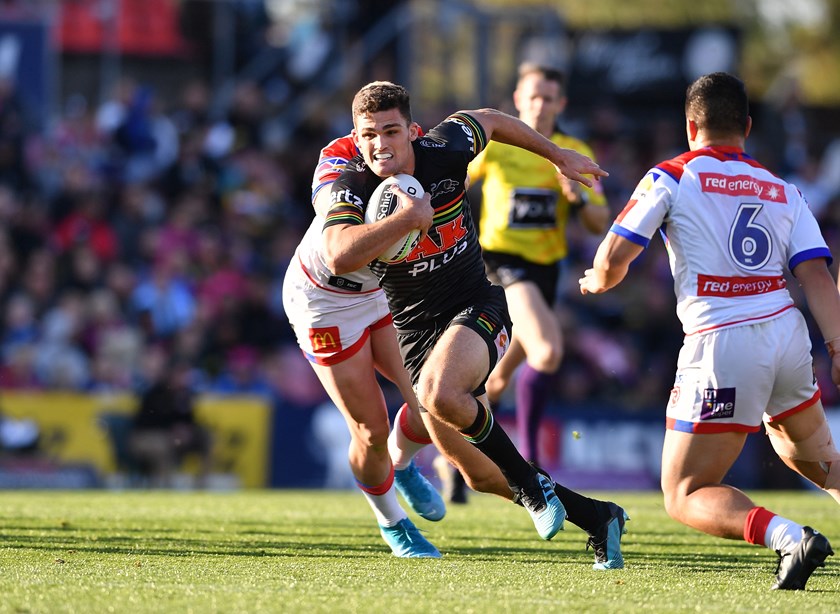
Warriors on the move
The following day Australian Border Force announced that the Warriors had been cleared to enter the country and fly to Tamworth, where the players went into quarantine at a hotel adjoining Scully Park.
There they were able to train together but otherwise had to maintain social distancing laws and could not leave the hotel for 14 days.
"I think one of the most remarkable things that we achieved was making Tamworth an international airport for a brief period of time," Boland-Rudder said.
"I had never appreciated how many different government agencies and authorities are needed to actually clear you through that process.
"We had to have the Australian Border Force for the customs clearance, we had to have the Federal Department of Agriculture, we needed NSW Police and NSW Health but none of those people were based up in Tamworth. In all reality we had to create a quasi-international airport for one flight."
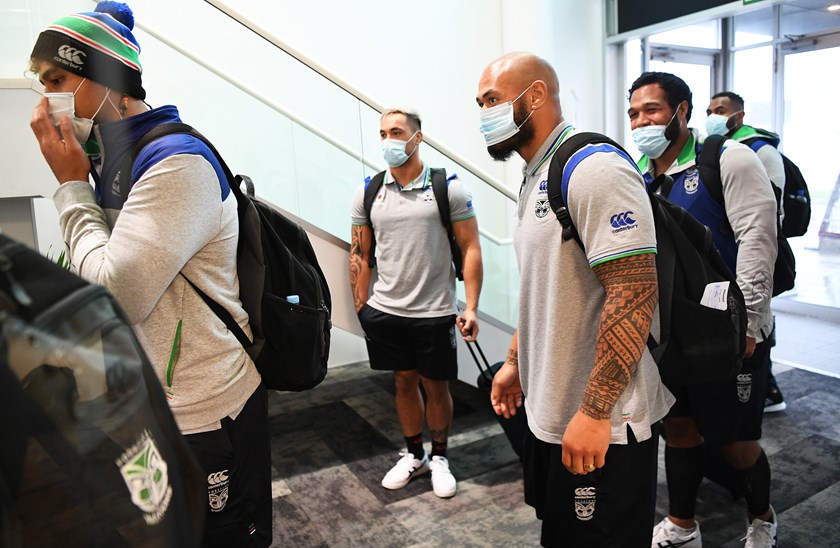
Initially the plan had been for the Warriors to fly to Gold Coast airport and stay at Lennox Head but that fell over.
Enter Tamworth MP Kevin Anderson, who provided just one of many examples for Boland-Rudder about the value of organisations like the Parliamentary Friends of Rugby League and the influence NRL programs such as Voice Against Violence or State of Mind can have.
"Kevin Anderson used to be the chair of the NSW Parliamentary Friendship group and he loves his footy," Boland-Rudder said.
"He sent me three different options for locations in and around Tamworth, he got on the phone to the Deputy Prime Minister that day and within 24 hours what seemed like a pipe dream was actually a reality.
"It is so nice that years of investment in those relationships helped bring some of these things to fruition.
"There was still a lot of things we were anxious about. The Warriors element was phenomenal. I wrote an email to everyone saying ‘good news, the Warriors have got their approval’. Graham wrote back and said ‘I now believe in Santa Claus’."


